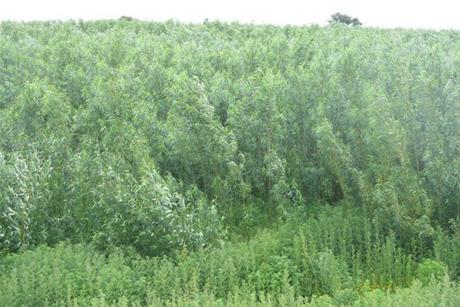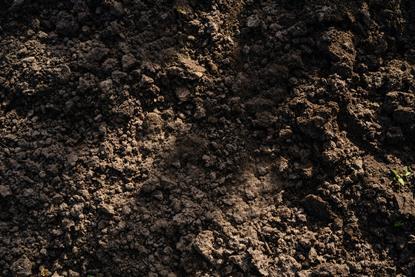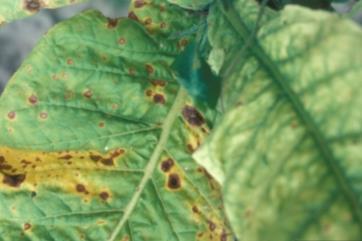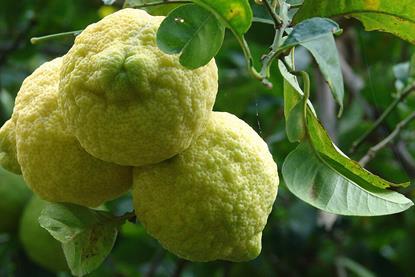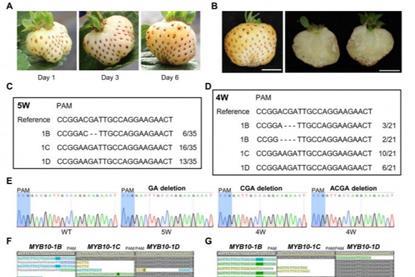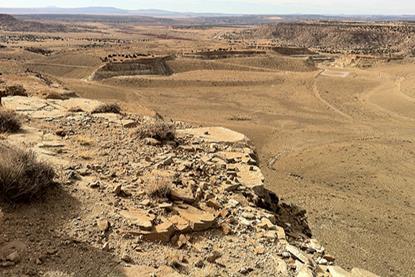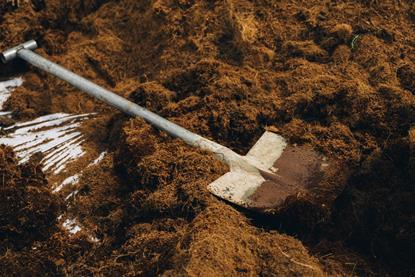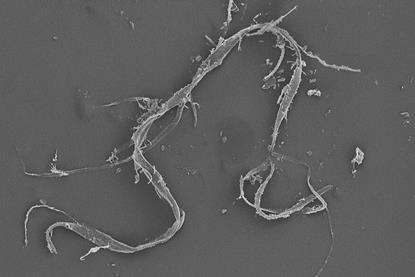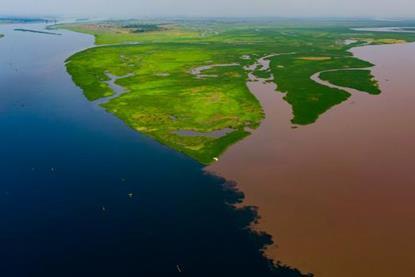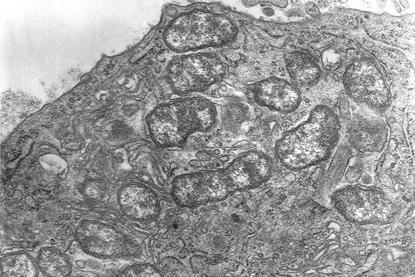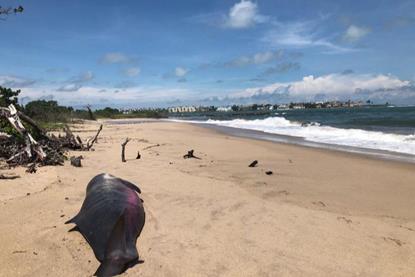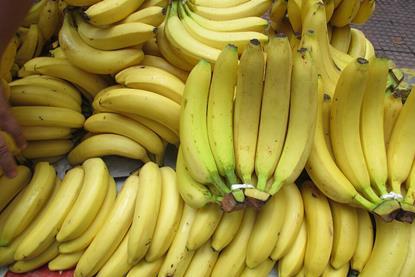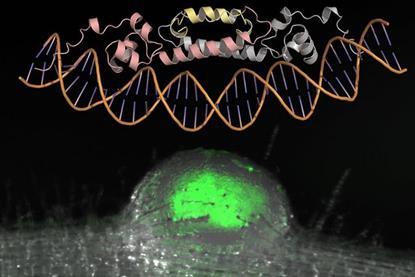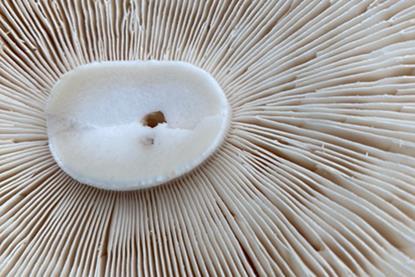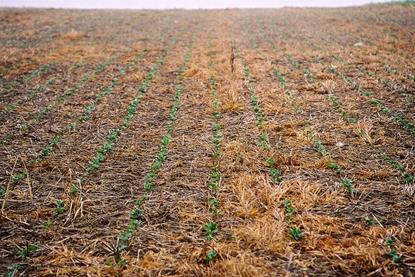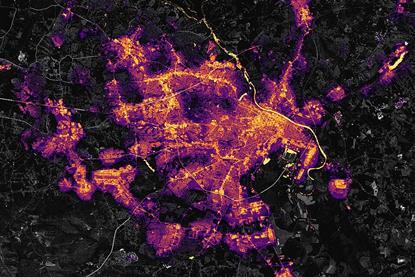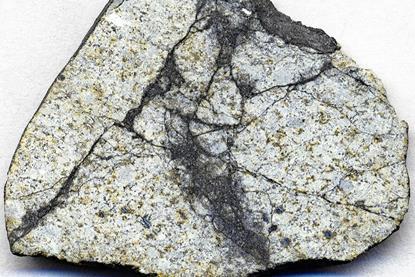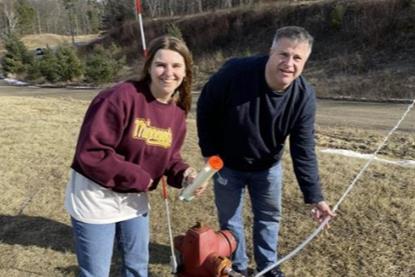Healthy land
Land has a wide variety of uses: agricultural, residential, industrial, and recreational. Microbes play a key role in the terrestrial ecosystem, providing symbiotic relationships with plants. Human use of land has led to the exhaustion of nutrients in soils, contamination of land, and a reduction in biodiversity. Applying our knowledge of microbes will be essential in restoring the biodiversity of affected ecosystems. Greater research into how microbes impact human life on land could all have a positive impact, by increasing crop production, repurposing areas of land and improving microbial biodiversity in soil, land, and water.
News
Source or sink? Trees with heart rot disease emit more methane, upending forest carbon models
New research suggests that upland forests harboring trees with a common and incurable fungal disease known as heart rot could actually be emitting more methane than they take in, therefore releasing more greenhouse gases than previously thought.
Read story- News
How recycled sewage could make the moon or Mars suitable for growing crops
Scientists are investigating how a solution of recycled sewage interacts with simulated lunar and Martian regolith to see if the result provides a suitable medium to grow crops. Bioregenerative life support systems consist of a series of bioreactors and filters that transform sewage into a nutrient-dense solution.
- News
New research highlights how biofilms could influence astronaut health, drug delivery and space agriculture
A global team of scientists has identified an often-overlooked biological system — biofilms — as a critical factor in the future of human space exploration.The team examines how biofilms could pose risks to astronaut health while also serving as powerful tools to sustain life beyond Earth.
- News
The new ‘forever’ contaminant? Study raises alarm on marine fiberglass pollution
Researchers investigating fibreglass contamination of an estuary looked at the biofilm and the deeper sediment layer where sediment‑dwelling invertebrates live and feed. They found fibreglass particles at several of the surface biofilm testing sites and 96 per cent of the sediment testing sites.
More Healthy Land
News
Scientists uncover how engineered biochar and microbes work together to boost plant-based cleanup of cadmium-polluted soils
A new study reveals how specially modified biochar can significantly improve the ability of willow trees to remove toxic cadmium from contaminated soils, offering a promising strategy for restoring polluted land in a sustainable way.
- News
Applied Microbiology International launches new report on improving soil health in the UK
Scientists have warned that the world’s tiniest organisms need to be taken into account in efforts to improve soil health. AMI has launched a new policy report setting out key recommendations to support the long-term protection, restoration and sustainable management of soils across the UK’s four nations.
- News
Novel structural insights into Phytophthora effectors challenge long-held assumptions in plant pathology
How do evolutionarily conserved pathogen effectors maintain structural stability while engaging diverse host targets? In a new study, researchers define a conserved subset of Phytophthora RxLR effectors in which short linear motifs (SLiMs) are embedded within folded WY domain cores.
- News
How citrus rewires its vascular system to fight Huanglongbing
By profiling thousands of individual cells, researchers mapped how different vascular cell types in citrus roots respond during early stages of infection with Candidatus Liberibacter asiaticus, revealing profound changes in cell fate, gene expression, and tissue differentiation.
- News
A single gene, a dramatic change: CRISPR unlocks white strawberries
Researchers used CRISPR/Cas9 to selectively edit a single dominant gene copy controlling fruit color in the commercial octoploid strawberry cultivar ‘Florida Brilliance’. By targeting the MYB10-1B gene, they successfully converted red strawberries into stable white-fruited plants.
- News
How bacteria can reclaim lost energy, nutrients, and clean water from wastewater
A new review explores how technologies using electricity-generating bacteria—like those already piloted at the UK’s Glastonbury Festival and in field trials in Uganda, Kenya, and South Africa—could help us reclaim resources currently being flushed away.
- News
Self-repairing biohybrid system uses sunlight to purify uranium-contaminated water
The efficiency of microbial remediation technologies is often limited by the slow electron transfer rate of microorganisms themselves. Scientists have successfully constructed a novel, self-regenerating “bacteria-mineral” biohybrid system that can utilize light like a solar cell, greatly enhancing the purification efficiency of uranium pollution.
- News
Research teams will develop automated compost monitoring system
Composting turns organic waste into nutrient-rich material, but improper temperature and moisture control can allow pathogens to survive and increase safety risks. Researchers have received a $362,000 grant to develop an automated sensor network to improve monitoring of compost piles.
- News
Microplastics in soil may reshape microbial genes and threaten ecosystem stability
A new review highlights how microscopic plastic particles accumulating in soils can alter microbial genes that control essential ecosystem functions, potentially affecting food production, climate processes, and environmental health.
- News
Peatland lakes in the Congo Basin release carbon that is thousands of years old
Researchers have discovered that large blackwater lakes in the extensive peatlands of the central Congo Basin are releasing ancient carbon. How the carbon is mobilised from the peat to the lake, where it is finally released to the atmosphere, is still unknown.
- News
Scrub typhus a threat in the home, study in South India finds
Most human scrub typhus infections could occur inside villages rather than during agricultural work, suggests new research conducted with the help of communities living in Tamil Nadu.
- News
Researchers discover novel bacteria in Florida’s stranded pygmy sperm whales
Researchers have identified three previously unknown genotypes of Helicobacter bacteria living inside stranded pygmy sperm whales. The study represents the first documented occurrence of these unique Helicobacter genotypes – now designated Kogia Helicobacter 1, 2 and 3 – in pygmy sperm whales.
- News
Hope for global banana farming in genetic discovery
Scientists have pinpointed crucial genetic resistance to fight a fungal disease which threatens the global banana supply in a wild subspecies of the fruit. The team have identified the genomic region that controls resistance to Fusarium wilt Sub Tropical Race 4 (STR4).
- News
Ancestral motif enables broad DNA binding by NIN, a master regulator of rhizobial symbiosis
Researchers investigated the molecular mechanisms whereby the transcription factor NODULE INCEPTION (NIN) - crucial for rhizobial symbiosis - can bind a broader spectrum of DNA sequences than its close homologs, using the legume Lotus japonicus (Miyakogusa) as a model system.
- News
Invasive death cap mushrooms are changing their chemistry
Scientists have just published new research about the chemistry of death cap mushrooms (Amanita phalloides) - the species is not only spreading rapidly as an invasive fungal species in the United States, but the move across continents has changed the chemistry of the species.
- News
Lower tillage boosts the soil’s natural phosphorus cycle - cutting the need for costly fertilizer inputs
Long-term tillage reduction helps to restore the soil’s natural phosphorus cycle, supporting more sustainable nutrient management with less reliance on costly and finite fertilizer inputs, according to a new study published in Sustainable Microbiology.
- News
Power grids to epidemics: study shows small patterns trigger systemic failures
Why do some systems collapse suddenly after what seems like a minor disturbance? In nature, a local disease outbreak can quickly escalate into an epidemic. New research suggests that in many cases, the key isn’t the entire system – but its smallest building blocks.
- News
Microbes harvest metals from meteorites aboard space station
Microorganisms can harvest crucial minerals from rocks and could provide a sustainable alternative to transporting much-needed resources from Earth. Researchers have studied how those microorganisms extract platinum group elements from a meteorite in microgravity, with an experiment conducted aboard the International Space Station.
- News
Strategic changes in water treatment could prevent disease outbreaks
A breakthrough new study shows how strategic changes in water treatment effectively treated a deadly outbreak of Legionnaires’ Disease. For the first time, the study provides evidence of an outbreak being stopped by introducing disinfection to previously untreated groundwater.




